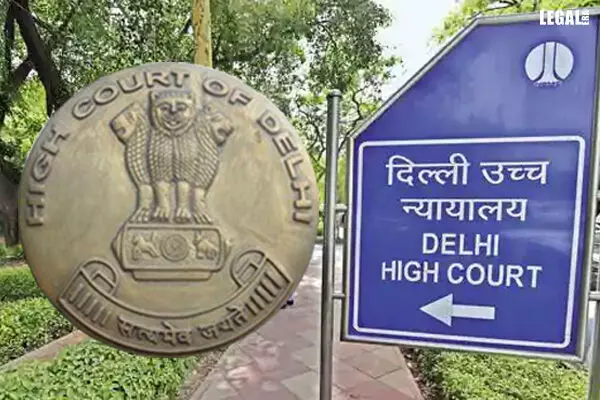- Home
- News
- Articles+
- Aerospace
- Artificial Intelligence
- Agriculture
- Alternate Dispute Resolution
- Arbitration & Mediation
- Banking and Finance
- Bankruptcy
- Book Review
- Bribery & Corruption
- Commercial Litigation
- Competition Law
- Conference Reports
- Consumer Products
- Contract
- Corporate Governance
- Corporate Law
- Covid-19
- Cryptocurrency
- Cybersecurity
- Data Protection
- Defence
- Digital Economy
- E-commerce
- Employment Law
- Energy and Natural Resources
- Entertainment and Sports Law
- Environmental Law
- Environmental, Social, and Governance
- Foreign Direct Investment
- Food and Beverage
- Gaming
- Health Care
- IBC Diaries
- In Focus
- Inclusion & Diversity
- Insurance Law
- Intellectual Property
- International Law
- IP & Tech Era
- Know the Law
- Labour Laws
- Law & Policy and Regulation
- Litigation
- Litigation Funding
- Manufacturing
- Mergers & Acquisitions
- NFTs
- Privacy
- Private Equity
- Project Finance
- Real Estate
- Risk and Compliance
- Student Corner
- Take On Board
- Tax
- Technology Media and Telecom
- Tributes
- Viewpoint
- Zoom In
- Law Firms
- In-House
- Rankings
- E-Magazine
- Legal Era TV
- Events
- Middle East
- Africa
- News
- Articles
- Aerospace
- Artificial Intelligence
- Agriculture
- Alternate Dispute Resolution
- Arbitration & Mediation
- Banking and Finance
- Bankruptcy
- Book Review
- Bribery & Corruption
- Commercial Litigation
- Competition Law
- Conference Reports
- Consumer Products
- Contract
- Corporate Governance
- Corporate Law
- Covid-19
- Cryptocurrency
- Cybersecurity
- Data Protection
- Defence
- Digital Economy
- E-commerce
- Employment Law
- Energy and Natural Resources
- Entertainment and Sports Law
- Environmental Law
- Environmental, Social, and Governance
- Foreign Direct Investment
- Food and Beverage
- Gaming
- Health Care
- IBC Diaries
- In Focus
- Inclusion & Diversity
- Insurance Law
- Intellectual Property
- International Law
- IP & Tech Era
- Know the Law
- Labour Laws
- Law & Policy and Regulation
- Litigation
- Litigation Funding
- Manufacturing
- Mergers & Acquisitions
- NFTs
- Privacy
- Private Equity
- Project Finance
- Real Estate
- Risk and Compliance
- Student Corner
- Take On Board
- Tax
- Technology Media and Telecom
- Tributes
- Viewpoint
- Zoom In
- Law Firms
- In-House
- Rankings
- E-Magazine
- Legal Era TV
- Events
- Middle East
- Africa
Delhi High Court sets aside notices; directs IT department to re-examine outward foreign remittance material

Delhi High Court sets aside notices; directs IT department to re-examine outward foreign remittance material
The payment pertained to the sale of immovable property and other amounts credited to the petitioner’s account
The Delhi High Court has ruled in favor of Dr. Ashok Kumar Sinha (petitioner), setting aside the order and notices issued to him under the Income Tax Act, 1963. It directed a re-examination of the outward foreign remittance documents provided by him.
The petition was filed against the notice issued under Section 148A(b) of the IT Act and the assessment order passed under Section 148A(d).
The counsel for the petitioner argued that the impugned order and consequential notices were passed without considering the detailed response filed by the petitioner. The petitioner had explained the charge against him, which alleged that the outward foreign remittance made by him had escaped assessment.
As per the petitioner, the foreign remittance was made as a result of the sale of immovable property by his late father, Dr.Achyutanand Sinha, and other amounts credited to his account.
The petitioner stated that his father distributed a significant portion of the credit balance from his account among the petitioner and his sibling.
After his death, the joint account with the State Bank of India (SBI) was converted into a Non-Resident Ordinary (NRO) account, and the remaining amount was transferred to the petitioner's Barclays Bank account in England. The remittance from SBI to Barclays was the outward foreign remittance scrutinized by the assessing officer (AO).
The senior standing counsel representing the respondents/revenue suggested that the appropriate course of action would be to set aside the order and initiate a re-examination of the material presented by the petitioner, including the material submitted to the Court.
The Bench comprising Justice Rajiv Shakdher and Justice Girish Kathpalia concurred with the submission of the counsel.
The judge directed that the AO must examine the assertions in the writ petition and the documents included.
Thereafter, if it is concluded that reassessment proceedings were warranted, a notice must be issued to the petitioner, providing a personal hearing. The AO should then pass a speaking order. Subject to the provisions of the law, the petitioner would have the right to challenge the order.



